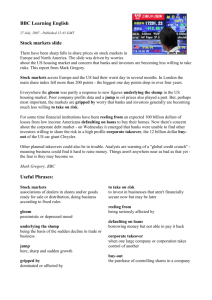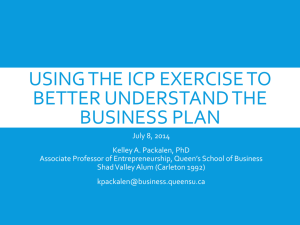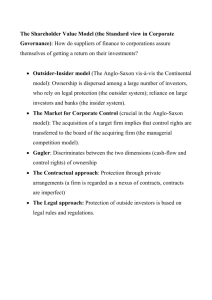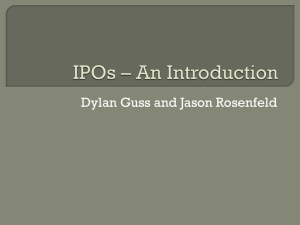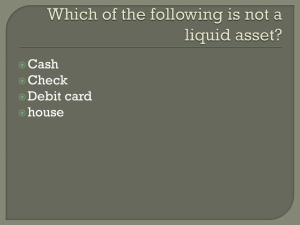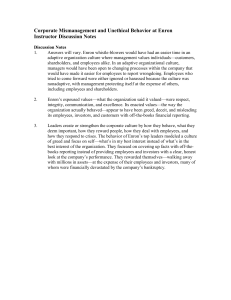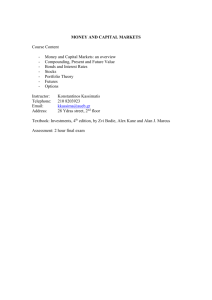Business Ethics - FIU College of Business
advertisement
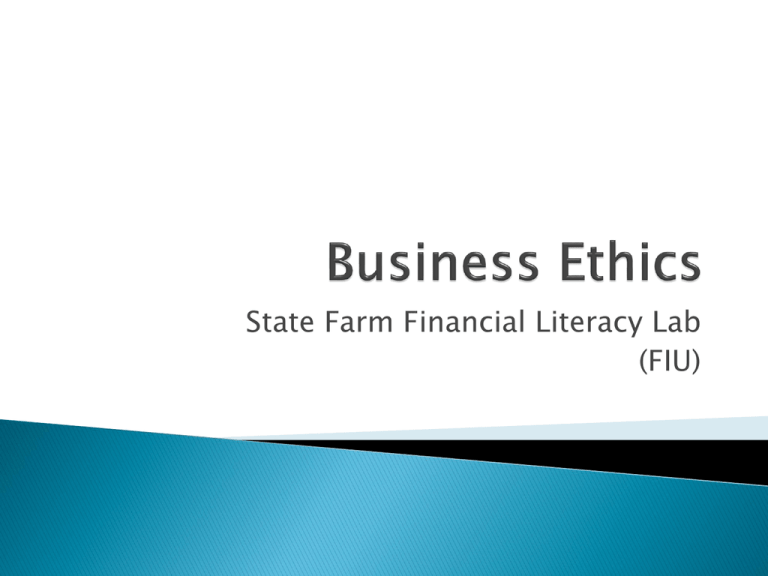
State Farm Financial Literacy Lab (FIU) A philosophy that deals with values relating to people’s conduct when it comes to the rightness and wrongness of their actions, and the goodness and badness of the motives of such actions. Objective: Examine ethical principles and/or ethical problems that arise in the business environment Actions taken and decisions made by businesses affect: ◦ ◦ ◦ ◦ Managers Stockholders/Investors Employees Customers Businesses, as well as individuals, behave unethically out of self interest and to the detriment of others. ◦ greed ◦ “cutting corners” to save money ◦ Profiting from being untruthful scams false advertisement False reporting (accounting) Tax evasion (illegal) Same ethical principles apply to financial institutions as they do to other businesses (large or small) A major motivation in many cases of unethical business practices is short-term profit ◦ seeking to beat quarterly estimates ◦ however, in order for a company to thrive and maintain viability, long-term goals are more important than short-term gain Deregulation of the banking system ◦ Started in the 1980’s ◦ Commercial banks, investment banks, and other financial institutions had less restrictions in what they were allowed to do (i.e. investment, banking activities) ◦ Deregulation had its upsides, but it also allowed greed and fraud to run rampant Financial institutions lent more money than they held in their reserves. This extraordinary lending did not discourage lenders because these loans were being sold to investors for a profit ◦ This was in the short-term interest of the individual lenders because they knew they were going to make a profit despite the risk involved Sub-Prime Mortgage Meltdown Home prices were rising to record levels. These elevated home prices warranted more borrowing (loans). Many investors were convinced that real estate value would continue to appreciate and would never depreciate. They saw this as an opportunity to invest in these popular securities (mortgage backed securities) being sold by investment banks. In the financial world, a scam that pays early investors returns that are taken from the investments of later investors Named after Charles Ponzi Representation of a company’s performance and forecasts given to investors. ◦ How truthful is “truthful enough”? ◦ “fudging numbers” ◦ Where should expenses be allocated? Different allocations will give different representative figures to investors. Corporations not only have an obligation to company performance in order to satisfy stockholders, but also an obligation to society as a whole ◦ BP Oil Spill ◦ Toymakers’ producing safe/non-toxic toys ◦ Car makers selling cars with effective brake pads There should always be constant review of all business activities Management should make sure employees understand the company’s ethical standards ◦ Seminars ◦ Meetings ◦ Tutorials Managers should think of the BIGGER picture ◦ How will this decision affect other stakeholders? To what extent? In the area of conducted business activity, what are the widely accepted moral principles? “be ethical”

